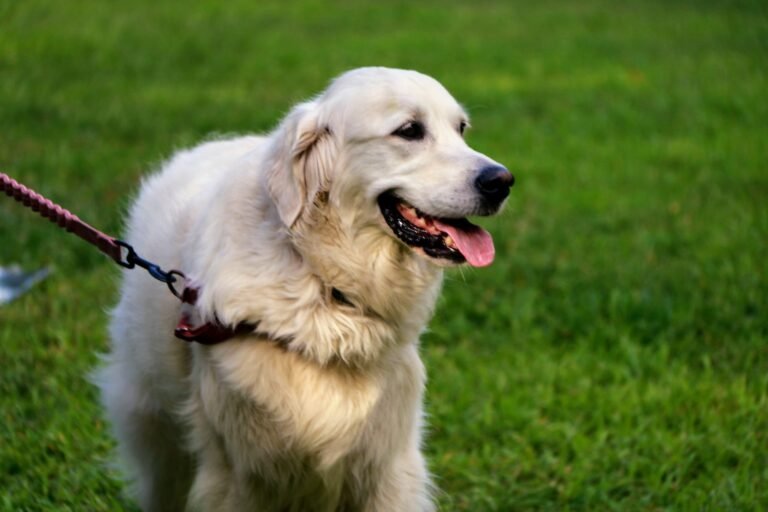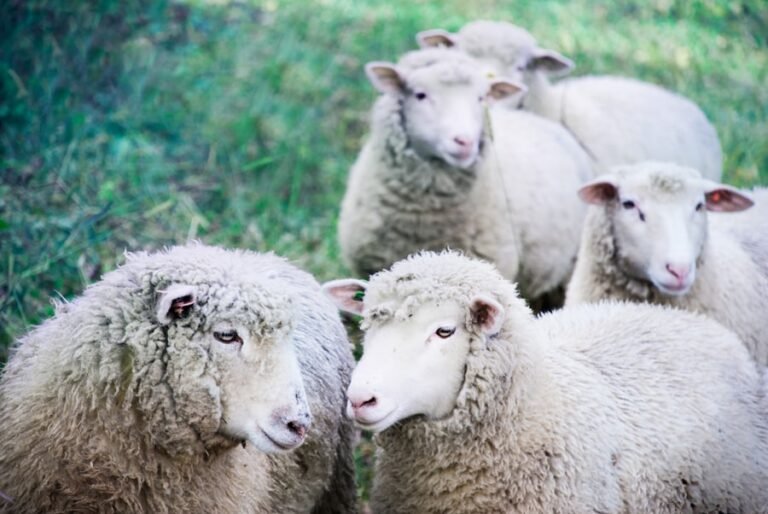Senior Citizen Paws: Navigating the Challenges of Owning an Older Border Collie
Border Collies are known for their intelligence, agility, and boundless energy, but as they age, they undergo a number of physical and behavioral changes. Understanding the aging process in Border Collies is crucial for providing them with the best possible care in their senior years. As with all dogs, the aging process in Border Collies is influenced by a variety of factors, including genetics, diet, exercise, and overall health. Generally, Border Collies are considered seniors around the age of 7, although individual dogs may show signs of aging earlier or later.
As Border Collies age, they may experience a decline in energy levels, changes in their coat and skin, and a decrease in muscle mass. They may also develop age-related health issues such as arthritis, dental problems, and cognitive decline. It’s important for owners to be aware of these changes and to adjust their care and management of their senior Border Collies accordingly. By understanding the aging process in Border Collies, owners can better anticipate and address the needs of their aging pets, helping them to live longer, healthier, and more comfortable lives.
Recognizing Common Health Issues in Older Border Collies
As Border Collies age, they become more susceptible to a variety of health issues that can impact their quality of life. Recognizing these common health issues in older Border Collies is essential for providing them with the appropriate care and treatment. One of the most prevalent health issues in senior Border Collies is arthritis, a degenerative joint disease that can cause pain, stiffness, and mobility issues. Dental problems, such as periodontal disease and tooth decay, are also common in older dogs and can lead to discomfort and difficulty eating.
In addition, senior Border Collies may experience cognitive decline, leading to changes in behavior, confusion, and disorientation. Other age-related health issues to watch for in older Border Collies include vision and hearing loss, kidney and liver disease, and cancer. By recognizing these common health issues in older Border Collies, owners can work with their veterinarians to develop a proactive approach to managing and treating these conditions, helping their senior pets to maintain a good quality of life.
Adjusting Nutrition and Exercise for Senior Border Collies
As Border Collies age, their nutritional and exercise needs change, requiring adjustments to their diet and activity levels. Providing senior Border Collies with the appropriate nutrition and exercise is essential for maintaining their health and well-being in their later years. Older Border Collies may require a diet that is lower in calories and higher in protein to help maintain muscle mass and support their aging bodies. They may also benefit from supplements such as glucosamine and chondroitin to support joint health and mobility.
In terms of exercise, senior Border Collies may not be able to handle the same level of activity as they did in their younger years. While they still require regular exercise to keep them physically and mentally stimulated, it’s important to adjust the intensity and duration of their workouts to accommodate their aging bodies. Shorter, more frequent walks, gentle play sessions, and low-impact activities such as swimming can help senior Border Collies stay active without putting too much strain on their joints. By adjusting the nutrition and exercise for senior Border Collies, owners can help their aging pets stay healthy, fit, and comfortable as they enter their golden years.
Managing Arthritis and Mobility Challenges in Older Dogs
Arthritis and mobility challenges are common issues that affect many older dogs, including senior Border Collies. Managing these conditions is crucial for helping senior Border Collies maintain their quality of life and mobility as they age. Arthritis is a degenerative joint disease that causes inflammation, pain, and stiffness in the joints, making it difficult for dogs to move around comfortably. To manage arthritis in senior Border Collies, owners can work with their veterinarians to develop a treatment plan that may include medications, supplements, physical therapy, and lifestyle modifications.
In addition to arthritis, senior Border Collies may experience other mobility challenges such as muscle weakness, balance issues, and difficulty getting up and down. Providing them with a comfortable and supportive living environment, including orthopedic bedding and non-slip flooring, can help them move around more easily and reduce the risk of falls. Regular, low-impact exercise, such as swimming and gentle stretching, can also help senior Border Collies maintain their mobility and muscle strength. By managing arthritis and mobility challenges in older dogs, owners can help their senior Border Collies stay active, comfortable, and independent for as long as possible.
Caring for a Senior Border Collie’s Dental Health
Dental health is an important aspect of overall wellness for dogs, and it becomes even more crucial as they age. Caring for a senior Border Collie’s dental health is essential for preventing pain, infection, and other oral issues that can impact their quality of life. As dogs age, they are more prone to dental problems such as periodontal disease, tooth decay, and tooth loss. These issues can cause discomfort, difficulty eating, and even lead to more serious health problems if left untreated.
To care for a senior Border Collie’s dental health, owners should provide regular dental care at home, including brushing their dog’s teeth, giving them dental chews or toys, and using dental rinses or water additives. They should also schedule regular dental cleanings and exams with their veterinarian to monitor and address any oral issues. A healthy diet, including dental-friendly foods and treats, can also support a senior Border Collie’s dental health. By prioritizing their dog’s dental care, owners can help their senior Border Collies maintain strong, healthy teeth and gums, and avoid the pain and health risks associated with dental problems.
Monitoring Cognitive Decline and Behavioral Changes in Aging Dogs
As dogs age, they may experience cognitive decline, leading to changes in behavior, memory, and overall mental function. Monitoring cognitive decline and behavioral changes in aging dogs is important for identifying and addressing these issues early on. Cognitive decline in senior dogs, often referred to as canine cognitive dysfunction (CCD), is similar to Alzheimer’s disease in humans and can cause disorientation, confusion, anxiety, and changes in sleep patterns and appetite.
In addition to cognitive decline, aging dogs may exhibit other behavioral changes such as increased aggression, anxiety, or clinginess. These changes can be distressing for both the dog and their owner, but they can often be managed with the right approach. Providing a stimulating and enriching environment, maintaining a consistent routine, and offering plenty of mental and physical exercise can help senior Border Collies stay engaged and mentally sharp. In some cases, medications and supplements may also be prescribed to support cognitive function and manage behavioral changes. By monitoring cognitive decline and behavioral changes in aging dogs, owners can provide their senior Border Collies with the support and care they need to navigate the challenges of aging.
Creating a Comfortable Living Environment for Senior Border Collies
Creating a comfortable living environment for senior Border Collies is essential for helping them feel safe, secure, and at ease as they age. As dogs get older, they may develop mobility issues, vision and hearing loss, and other age-related challenges that can impact their ability to navigate their surroundings. To accommodate these changes, owners can make simple modifications to their home to create a more comfortable and accessible living environment for their senior Border Collies.
For example, providing orthopedic bedding and ramps or steps can help senior dogs get in and out of their favorite spots more easily. Non-slip flooring can prevent falls and make it easier for senior Border Collies to move around. Keeping pathways clear of obstacles and providing adequate lighting can also help senior dogs navigate their environment more safely. Additionally, creating a quiet, peaceful space where senior Border Collies can rest and relax without being disturbed can help reduce stress and anxiety. By creating a comfortable living environment for senior Border Collies, owners can help their aging pets feel more at ease and supported as they go through the changes that come with getting older.
Providing Mental Stimulation and Enrichment for Older Dogs
As dogs age, they may experience a decline in physical and mental abilities, making it important to provide them with mental stimulation and enrichment to keep their minds sharp and engaged. Providing mental stimulation and enrichment for older dogs is essential for preventing cognitive decline, reducing boredom, and promoting overall well-being. Senior Border Collies can benefit from a variety of mental stimulation activities, including puzzle toys, interactive games, and training exercises that challenge their minds and keep them engaged.
In addition to mental stimulation, providing enrichment activities such as scent work, agility, and socialization can help senior Border Collies stay active and engaged. These activities not only provide mental stimulation but also help maintain physical fitness and social connections, which are important for overall wellness. By providing mental stimulation and enrichment for older dogs, owners can help their senior Border Collies stay mentally sharp, emotionally fulfilled, and better equipped to navigate the challenges of aging.
Navigating End-of-Life Care and Decision Making for Senior Border Collies
As dogs reach their senior years, owners may be faced with difficult decisions regarding end-of-life care and quality of life. Navigating end-of-life care and decision making for senior Border Collies is a challenging but important aspect of pet ownership. As dogs age, they may experience a decline in health and mobility, as well as an increase in pain and discomfort. It’s important for owners to monitor their senior Border Collies closely and work with their veterinarians to assess their pet’s quality of life and make decisions about their care and treatment.
In some cases, palliative care, pain management, and other supportive measures may be appropriate to help senior Border Collies live comfortably and with dignity in their final days. In other cases, owners may need to consider euthanasia as a compassionate and humane option to prevent unnecessary suffering. Navigating these difficult decisions requires careful consideration, open communication with veterinary professionals, and a deep understanding of the needs and well-being of the senior Border Collie. By navigating end-of-life care and decision making for senior Border Collies, owners can ensure that their beloved pets receive the care and support they need as they approach the end of their lives.
Finding Support and Resources for Senior Border Collie Owners
Caring for a senior Border Collie can be a rewarding but challenging experience, and owners may benefit from finding support and resources to help them navigate the unique needs of their aging pets. Finding support and resources for senior Border Collie owners can provide valuable information, guidance, and emotional support to help them provide the best possible care for their aging pets. There are a variety of resources available to senior Border Collie owners, including books, websites, and online communities dedicated to senior dog care. These resources can provide information on topics such as nutrition, exercise, health care, and end-of-life care, as well as tips for managing the challenges of caring for an aging pet.
In addition to online resources, owners can also seek support from their veterinarians, who can provide guidance and expertise on senior dog care. Veterinary professionals can offer advice on managing age-related health issues, adjusting nutrition and exercise, and making end-of-life decisions. They can also provide support and compassion to owners as they navigate the emotional and practical aspects of caring for a senior Border Collie. By finding support and resources for senior Border Collie owners, owners can gain the knowledge and support they need to provide the best possible care for their aging pets and ensure that they live out their golden years with comfort, dignity, and love.









